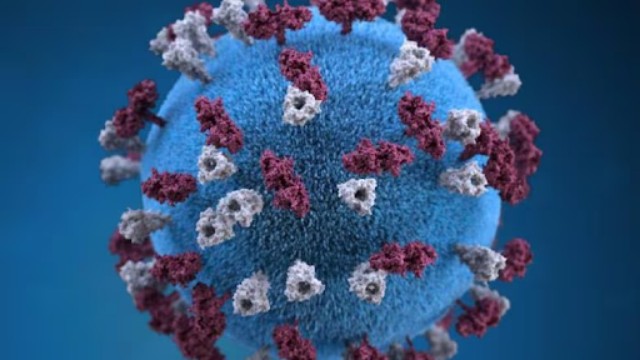
AHS has released a warning about possible measles exposure at several spots in southern Alberta. People are being urged to watch for symptoms like a high fever, cough, runny nose, red eyes, and a red, blotchy rash. (Alissa Eckert/CDC)
Alberta Health Services (AHS) has released a public health notice following a recent spike in confirmed measles cases in southern Alberta. The alert includes warnings for several cities and towns, such as Calgary, Coaldale, Lethbridge, Taber, and Rocky View County, where people may have come into contact with the virus.
According to AHS, specific locations and times have been identified where the public may have been exposed:
- Days Inn by Wyndham (Calgary Airport): April 11 from 5 p.m. to April 12 at noon.
- Pool at the same hotel: April 11, between 5 p.m. and 8 p.m.
- CrossIron Mills mall: April 11, from 11 a.m. to 6 p.m.
- IKEA Calgary: April 11, between 4 p.m. and 7 p.m.
- Taber Health Centre (waiting room): April 14, from 2 p.m. to 6:45 p.m.
- Coaldale Health Centre: April 14, from 5:30 p.m. to 11 p.m.
- Taber Health Centre (lab and waiting room): April 15, from 3 p.m. to 5:15 p.m.
- Chinook Regional Hospital in Lethbridge (imaging unit): April 16, from 2:55 p.m. to 5:10 p.m.
Anyone who visited these places during the listed times, especially those born in 1970 or later and who haven’t had two doses of the measles vaccine, could be at risk. AHS advises these individuals to check their vaccination records and be alert for early symptoms.
Measles typically starts with a high fever, cough, runny nose, and red eyes. After three to seven days, a red, blotchy rash usually appears. AHS encourages people to stay vigilant and seek medical advice if symptoms develop.
As of Tuesday, the province has confirmed 118 cases of measles, up 29 from the last update before Easter. The south health zone, where the majority of the new cases have emerged, now has 31 confirmed infections. Calgary has not seen any new infections in the latest update, holding steady at five cases.
Dr. Dawn Bowdish, a professor and immunologist at McMaster University, emphasized the risk posed by fluctuating vaccination rates across different communities. She warned that areas with low vaccine coverage could experience outbreaks that spread rapidly due to the highly contagious nature of measles.
"Some regions may hit 95% vaccination coverage, while others drop to 20 or 30%. That uneven protection makes outbreaks much harder to control," she noted.
She also pointed out that babies, young children, pregnant women, and people with weakened immune systems are especially vulnerable. Because infants are too young for the vaccine, they rely on those around them to be immunized to reduce their risk.
To help protect the community, AHS is offering free measles vaccinations. Residents can book appointments by calling Health Link at 811 or contacting their local health centers. More details, including updates on exposure sites, are available on the AHS website.















